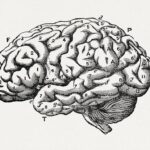
Understanding Practices for Daily Skin Care
October 3, 2025
The Intersection of Pediatric Neurology and Mental Health
October 4, 2025Post-traumatic stress disorder (PTSD) is a condition that some people develop after experiencing or witnessing a shocking, scary, or dangerous event. Although it is normal to have upsetting memories or feel on edge after such an experience, a person might be diagnosed with PTSD if symptoms last for more than a month and interfere with daily life. People with PTSD experience a range of symptoms. Here is more information about this condition:
Flashbacks and Anxiety
Flashbacks are a hallmark symptom of PTSD, and they cause individuals to re-experience the traumatic event as if it were happening again. These intrusive memories may involve sights, sounds, or smells from the original trauma, which can be disorienting and distressing. Individuals with PTSD may experience heightened anxiety. They may feel constantly on guard or easily startled.
This state of hypervigilance is the body’s attempt to prevent future harm. These reactions can make everyday situations feel overwhelming, affecting work, relationships, and personal well-being. Understanding these symptoms is helpful because it aids in developing effective coping strategies and seeking professional support if necessary.
Nightmares and Insomnia
Sleep disturbances are typical for those with PTSD. Because nightmares frequently replay aspects of the traumatic event, individuals may dread going to sleep. This avoidance of sleep can lead to insomnia, which is a persistent difficulty with falling or staying asleep. These sleep problems contribute to daytime fatigue, and they also intensify other symptoms like irritability and difficulty managing emotions.
Inability to Concentrate
Cognitive functions may be affected by PTSD, leading to difficulties with focus and memory. Individuals may struggle to focus on tasks or conversations, which can affect their performance at work or school. This inability to concentrate stems from the brain remaining in a state of high alert. The mind is preoccupied with potential threats, so it has fewer resources available for other mental activities.
Treatable With Therapy
PTSD is a treatable condition, and various therapeutic approaches are available to help manage its symptoms. One method is talk therapy, also known as psychotherapy, where individuals work with a mental health professional to process their traumatic experiences. These therapies help individuals reframe negative thoughts and reduce the emotional charge of traumatic memories.
In addition to traditional talk therapy, other treatments have emerged. Transcranial magnetic stimulation (TMS) is a non-invasive procedure that uses magnetic fields to stimulate nerve cells in the brain to improve symptoms of depression, which can co-occur with PTSD. While TMS targets brain regions associated with mood regulation, it provides a different modality for individuals seeking alternatives to psychotherapy or medication. TMS is administered over a series of sessions.
Some clinics also utilize ketamine-assisted therapy. Ketamine is administered in a controlled medical setting, and it can produce a temporary dissociative experience that may help individuals access and process traumatic memories from a different perspective. When it is combined with psychotherapy, ketamine may facilitate breakthroughs that are more difficult to achieve through talk therapy alone. This treatment is typically reserved for cases that have not responded to other interventions.
Get Treated for PTSD
The long-lasting effects of trauma do not have to define a person’s life. A range of symptoms, including flashbacks, sleep disruption, and concentration issues, can make daily functioning difficult. If you are experiencing symptoms of PTSD, contact a qualified healthcare provider to discuss treatment options.



